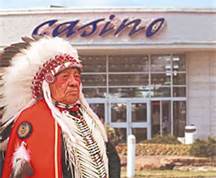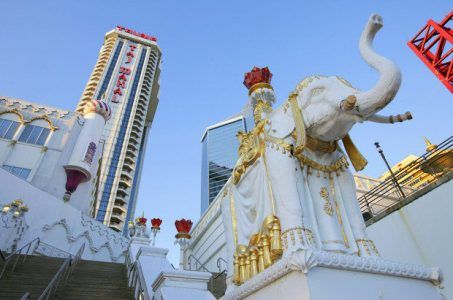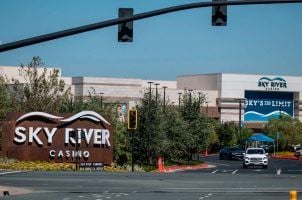California Tribes Approved for Off-Reservation Casinos
Posted on: August 19, 2013, 05:30h.
Last updated on: December 3, 2014, 04:16h.

Long restricted to Native American reservations, tribal-operated casinos in California appear ready to expand in a big way. One off-reservation casino has already been approved, which has many other tribes looking at whether they can’t move into other parts of the state as well.
Compacts Allow for New Sites
The expansion officially began weeks ago, when the State Legislature approved a compact between the North Fork Rancheria of Mono Indians and Governor Jerry Brown. That compact allowed the tribe to construct a casino featuring 2,000 slot machines in Madera County. This is notable because the site of the casino will be over 30 miles from the lands historically occupied by the tribe – the result of a long and ultimately fruitful negotiation between the tribe, other tribes, and the state government.
That move has given other tribes hopes of moving away from their traditional reservations as well. There are now other tribes looking at casinos in Yuba County, San Bernardino County and Imperial County as well.
But there’s no guarantee that any of these projects will ultimately go forward. Anti-casino groups are already lining up to give voters a chance to block the Mono Indian project, suggesting that voters should have a chance to veto the project through a referendum.
Citizens Want a Say
“If we’re going to have one man make a determination that he can put a casino anywhere, certainly the citizens of the state of California deserve to have a voice…in whether or not they want to expand tribal gaming into more urban and metropolitan areas,” said Cheryl Schmit, head of the anti-casino group called “Keep Vegas-Style Casinos Out of Neighborhoods”.
“The role of the governor is very limited in the state of California,” Schmit added. “[The governor] lacks the authority to grant concurrence for gaming off of Indian lands.”
Meanwhile, supporters point out that this is exactly how such compacts are meant to be formed. Under the Indian Gaming Regulatory Act, Native American tribes can gain the federal government’s approval to put land in trust. They may then negotiate a compact with the state’s governor, which in turn must be approved by the state legislature.
According to Schmit, most of the donations that come into her group normally come from citizens groups. However, given that the referendum is a statewide initiative, she had to set up a committee that allows anyone to donate.
That has led to $515,000 in contributions – but they’re not all from “citizens groups.” About half of that amount has been donated by the Table Mountain Rancheria tribe near Fresno, which operates its own casino.
But while some tribes may worry about new competition, most are more excited about the opportunities that off-reservation gaming could create. Other tribes are currently waiting on approval from the Interior Department, after which they might be able to build their own casinos away from their reservations.
Despite these advances, however, tribal officials still know that they face an uphill battle when it comes to building off-reservation casinos.
“The reality is these tribes don’t have any land on which to build new casinos, so they have to petition new land,” said Charles Banks-Altekruse, a spokesman for Enterprise Rancheria. “They did it this way and they’re still getting slammed for it.”
Related News Articles
Pair Found Guilty in New Zealand Roulette Scam
Trump Taj Mahal Likely to Close in New Jersey Despite Concessions
Trump Taj Mahal Delays Closing Date to Late December
Macau Junket Operators Under Scrutiny as Area’s Revenues Freefall
Most Popular
Genovese Capo Sentenced for Illegal Gambling on Long Island
NBA Referees Expose Sports Betting Abuse Following Steve Kerr Meltdown
UPDATE: Former Resorts World & MGM Grand Prez Loses Gaming License
VEGAS MYTHS RE-BUSTED: The Traveling Welcome to Las Vegas Sign
Most Commented
-
UPDATE: Whiskey Pete’s Casino Near Las Vegas Closes
— December 20, 2024 — 33 Comments -
Caesars Virginia in Danville Now Accepting Hotel Room Reservations
— November 27, 2024 — 9 Comments -
UPDATE: Former Resorts World & MGM Grand Prez Loses Gaming License
— December 19, 2024 — 8 Comments -
FTC: Casino Resort Fees Must Be Included in Upfront Hotel Rates
— December 17, 2024 — 7 Comments















